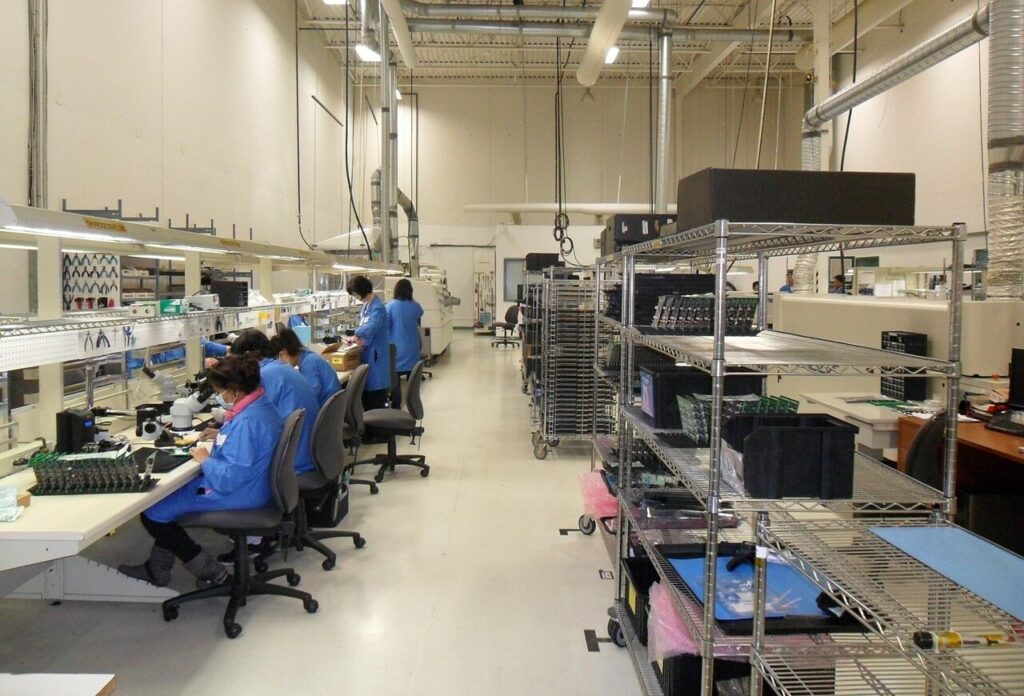Send staff to China? What’s the value of having ‘boots on the ground’ in China?
The seemingly common response, to lower product cost, is questionable. An importer outside of China can negotiate with multiple suppliers to get the lowest cost. A smart buyer knows that there are bigger costs than product cost and going with the lowest price may end up costing more in the end. Better pricing comes from how much a supplier wants to work with the customer. The desire to cultivate a business relationship is usually driven more by volume and/or personal relationship than whether the customer has a presence in China. The real benefits for having a presence in China are also financially related, but indirectly and related to an expense much greater than product cost.
Proximity to product development allows a company to control the expertise and quality of communication where it matters most. A strong local team saves countless hours of inefficient emails or chat messages. Finding the right local talent adds immeasurable value to a product and project. This includes verifying if suppliers are delivering on promises, like using the same components in mass production and samples, audit and improve manufacturing practices, and implement meaningful quality standards. The speed of communication and, in turn, project progress is multiple times faster when there’s someone to interact with engineers and component suppliers in their timezone.

With or without staff in China, the foundation for success is having suppliers that view transparency as an asset rather than a risk. It’s surprising how many manufacturers in China ship out orders with problems and hope the client doesn’t notice. It’s a decision that can end a client relationship or, even worse, put the client out of business. Avoiding this motivates some companies to have ‘boots on the ground’, but what if your supplier demonstrated integrity through proactive decision making and transparent communication? How much would you save and how much would you gain? With a high quality supplier, an ‘in-house’ team in China becomes less necessary.
There are varying degrees of supplier quality. Assuming the supplier actually cares about doing a good job, the question becomes how capable they are. When you first get a sample, do they pay attention to the basic requirements? For example if you need a custom color case, do they check the color against a Pantone book before sending it to you. Let’s say you’re working on a custom Android tablet, do they check that the memory configuration matches what was agreed to? Have they checked other customizations like menu wallpaper, startup and shutdown logos, and audio requirements? At this early stage, has the supplier shown the ability to find and resolve problems or will they ship and try to excuse their way to forgiveness?
Let’s assume the supplier did a great job with checking for the basic requirements. The next level of value comes when the supplier starts to feel and act like a part of the customer’s team. Does the supplier understand the detailed use case of the product? This is especially important for custom devices, whether it’s an Android product or something else. When an experienced and competent custom Android supplier understands the use case and use environment, they can provide valuable suggestions about customizing hardware based on the product’s unique criteria.
In situations where the supplier fails to provide a high level of support, having your own staff in China can help mitigate risks and avoid headaches. Good staff will provide valuable insight on the development process. An insightful suggestion can result in the product delivering a better experience to the end user or avoid a bad development decision. After making a useful suggestion, if your staff has the ability to implement that suggestion on the engineering side, they start to become a pillar of your company’s success.
Even better would be if your supplier provides this level of support, making it unnecessary to maintain in-house staff in China, saving money and management bandwidth. The added value this level of service brings to your company compares to having your brain operated on by a Tourettes patient or skilled neurosurgeon.
Testing during the prototype and trial production stages
This is the stage of product development where a lot of time can be saved with a strong local presence in China. After a customer first receives their initial prototypes or trial production products there’s a lot of excitement, questions, and a few revision requests. Modifications of firmware is a common revision. Simple changes can take 1-2 days, however often changes aren’t done correctly the first time.

Possibly the engineer didn’t test properly or didn’t really understand the desired result. You want to test the updates locally in China and get immediate feedback to the firmware engineer. A dedicated project manager in China knows your desired outcome and can work with the engineers to deliver that.
Without this local support the process becomes less efficient. Your supplier sends you updated firmware during the day, China time. You’ll get it in your morning. You need to set aside time to install and review the new firmware. When you find out there are problems, you’ll have to clearly document them in a way that a Chinese engineer will understand.
The reality is that this takes a lot of time for the person doing the review and if the review needs to be done on the client side then it becomes a 2 day process that sucks hours out of someone’s schedule. It’s much more efficient for the client when the updated firmware gets tested and fixed before they review. Look for a partner in China that has this level of connection to your project and competency to do something about it.
Note if the supplier tries to obtain an intimate understanding of how a product will be used and its functional requirements. With that understanding, the supplier can provide faster deliveries and require less of a time commitment from a customer’s staff. Faster development is the hidden goldmine and usually hard to quantify. A faster development means sales come sooner and time paying salaries without those sales ends sooner, creating a significant impact on finances.
On a side note…Hatch does our best to become part of your team and understand every detail of your product so that we can provide insightful feedback and lead a fast development process. 🙂


